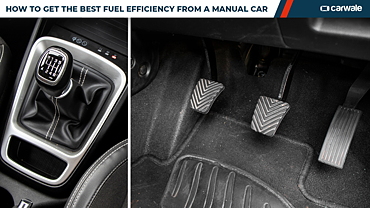
The tranquility of the mountains is broken only by the whizzing sound of the windmills and the occasional chirping of birds. The air is heavy with the sweet musky smell of wet soil mixed with the acrid burning smell of the clutch, left behind by the Zero car. I am waiting by the corner at the end of first straight of the Beta stage. This is supposedly a good spot to spectate, the cars will carry breakneck speeds through the straight and brake aggressively before the taking the sharp right hander on the stage. This corner separates the boys from the men, giving you a brief demonstration of the rally drivers’ bravery and the technical skills.

The silence is broken by an unfamiliar rumble and the bright orange speck keeps growing in size leaving an even bigger trail of dust behind. This is the XUV500, not the ones that we are used to seeing on the roads, but a rally-spec version piloted by the Asia Pacific rally champion, Gaurav Gill. Either the car was really fast or our judgement way off the mark, as it passed us much sooner than expected, showering us with gravel before we could scamper off to a safe distance. I turn back just in time to notice the driver apply a slight opposite lock and gracefully tuck the car back on to the racing line. Lesson learnt – stay at least a few metres away from the road and find a position that won’t have us darting for cover every time a car passes by. I can’t help but let out a satisfied, yet envious whoop as I envision all the fun that the driver and navigator sitting in the car must be having. As I settle down for two minutes (the duration after which the next car comes along), I let my imagination run wild as to how the car would tackle the next set of corners. In such a situation, you can’t help but acknowledge the fact that there is a method behind all this madness, and that rallying is something way beyond the ordinary.


The Rally of Maharashtra is quite different from the other rounds of the IRC, as it is one of just two tarmac rallies in the championship’s calendar, the other being held in Kerala, which is making a comeback after seven years. While racing on tarmac might seem ‘easier’ than on gravel, you have to remember that tarmac present a tougher challenge to the rally cars. Rally stages are faster than the gravel stages, and this increased speed proportionately escalates the risks and probability of a crash. Also when the tarmac is hit by the first few drops of rain; it gets transformed into a slippery and unpredictable ordeal, which is notoriously famous for spinning the rally cars off the roads. And considering that the round takes place in a hilly area where weather can dramatically change in a matter of minutes, the rally becomes even more technical and driver oriented.

The Rally of Maharashtra is conducted over three days on three special stages and a super special stage (SSS). The three special stages – Alpha, Beta and Gamma, are run three times each during the first two days, and take the competitors from steep uphill and downhill sections to challenging corners, from fast flowing corners to tight hairpins, all of which need the cars to be taken to their limits. The SSS on the other hand, is a short and tight circuit within the Dadasaheb Phalke Smarak memorial. Each driver’s timings for all these stages are added up along with penalties (if any) after the end of the SSS, and the standings are decided after arranging the drivers in the ascending order of their overall timings.

The 2015 season of the IRC is witnessing a battle of the underdogs in the premier Open class. While XUV does not look like an underdog, pit it against a 300bhp four-wheel-drive Mitsubishi Evo and the analogy will start making sense. Even the humble looking Polo R2 puts out more power and uses sequential the dog-leg gearbox that makes the heavy Mahindra Super XUV500 look out of place. Coming to their aid though is the raw talent of Gaurav Gill, the mad torque of the mHawk diesel engine and months of preparation put in by the team.

While Gill had established a comfortable lead over Amitrajit Ghosh by the end of the three special stages, Samir Thapar’s Mitsubishi Evolution X was put out of contention in the Rally of Maharashtra by a nasty crash. Arjun and his Polo R2 could never come back from the early set back of running slick tyres in the rain, but his charge on the day two for the second position kept the interest alive till the final stage.


For Gill it turned out to be another clinical victory, the Polo R2 made the most of its nimbleness and agility to sneak past the XUV500 in the tight SSS to grab the second spot on the podium, as Arjun overcame a 10 second deficit in the three SSS stages to outpace Ghosh by just one second!

At the end of the day, even the most cynic rally drivers will agree with the fact that ‘luck’ plays an equally important role in deciding your performance in the rally. It’s almost foolish to hope for the conditions to be ‘ideal’ in a rally, as the constant pounding from the cars and the constantly changing weather mean that the surface of tarmac keeps changing. Drivers had to come to terms with the fact that not everything in a rally can be under you control. ‘Watch and adapt’ are the keywords and drivers have to keep making adjustments to their driving style according to what they see and hear.

With adrenaline pumping in their veins, these guys are driven by the prospect of reaching a higher state of nirvana. Participating in a rally is not for the faint hearted, as it requires a focused mindset, a lot of dedication and of course loads of moolah! The dearth of support from the government means that rallying continues to be a sport for elites. While a few of these racers have managed to get noticed and score sponsorship deals to continue with their passion, others have to pay for this sport from their own pockets. It might not be visible on the face of it, but the rivalry among racers is quite intense. However, once the helmets and gloves are off, these racers make up a tightly knit community who are ever ready to lend a helping hand to their fellow men.


Anyone who has been to a rally for the first time in his life will call the experience enjoyable, exhilarating and to some extent, transformative. Rallying has the potential to reshape your perception towards driving and keen enthusiasts get to learn a lot by observing the driving techniques of rally drivers. The rest, they can simply enjoy some fast-paced action from really close unlike in any other form of racing. With ever-growing thirst for such experiences, people are slowly realising the excitement that rallying provides, and this is obvious by the slowly increasing strength of spectators who line up by the side of the road.

I can’t help but feel sad for Sanchit, who had to watch the rally through the lens of his camera, perched on top of different boulders in awkward positions, trying to capture the cars as they shot past us. I had lowered my camera and put it aside long ago, as the urge of experiencing the rally through my bare eyes overpowered my need to take photographs. It had taken a lot of persuasion to get me up and running on the first day of the rally, though the first chime of the alarm clock made me shoot awake with an excited jolt on the second day. And by the end of it, I was left with a mild satisfaction of knowing that I had experienced something truly amazing. Despite how exciting rallying seems through the pictures, you have to experience all of this first hand to fully comprehend the beauty of this sport. While it isn’t economical for a guy like me to attend all the rounds, since the circus moves around the country, I am sure that I will make more time to attend at least one more rally this season.






